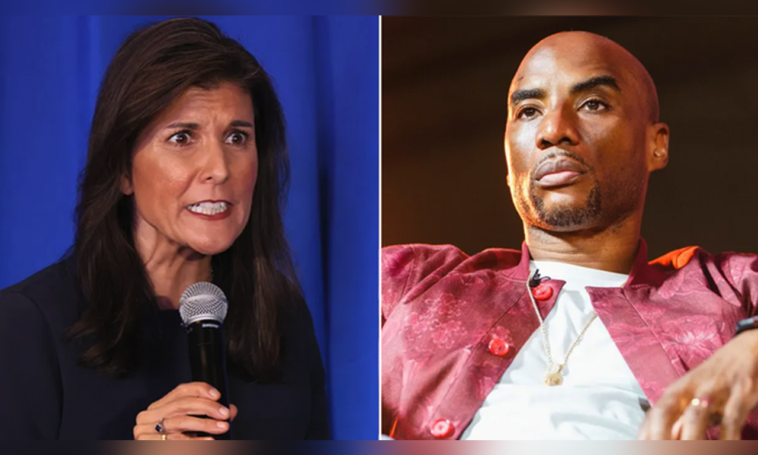Radio personality Charlamagne Tha God’s interview with Republican presidential contender Nikki Haley ignited significant controversy, stemming from Haley’s initial remarks regarding the causes of the Civil War and her subsequent clarification.
In December, Haley faced criticism after she failed to explicitly mention slavery as the primary catalyst for the Civil War during a town hall event. Instead, she attributed the conflict to debates surrounding governmental functions and individual freedoms. This omission drew backlash from both the White House and members of her own party.
In response to the outcry, Haley clarified her position, acknowledging slavery’s pivotal role in igniting the Civil War while also highlighting broader concerns about governmental authority and personal liberties.
She made these clarifications during an interaction with New Hampshire Governor Chris Sununu, emphasizing the necessity of preventing the recurrence of slavery while contemplating its implications for governance and individual freedoms.
Charlamagne Tha God used his interview with Haley as an opportunity to explore her views on slavery further.
Haley admitted that her failure to address slavery directly during the town hall stemmed from a misunderstanding of the question’s context.
Despite her upbringing in South Carolina, where the connection between slavery and the Civil War is widely acknowledged, Haley took responsibility for not immediately acknowledging slavery as the root cause of the conflict.
When Charlamagne asked about her emotions during that event, Haley expressed regret and acknowledged the gravity of her oversight. She admitted feeling foolish for not mentioning slavery, a critical aspect of Civil War history, during the town hall.
The conversation between Charlamagne and Haley epitomizes the ongoing debate surrounding the narrative of American history, particularly regarding the causes and repercussions of the Civil War.
While Haley’s initial omission of slavery sparked criticism, her subsequent reflections underscore the complexities of historical interpretation and the challenges of addressing sensitive topics like slavery in public discourse.
Haley’s admission of her mistake underscores the significance of historical accuracy and accountability, especially for public figures engaged in political discourse.
The incident emphasizes the importance of informed and responsible dialogue about America’s past, particularly concerning contentious topics such as slavery and its lasting impact.
Furthermore, the exchange between Charlamagne and Haley underscores the role of media personalities and interviewers in holding public figures accountable for their statements and beliefs. Charlamagne’s probing questions challenged Haley to confront the historical realities of the Civil War and prompted her to reflect on her initial remarks.
In the broader context of contemporary political discourse, Haley’s experience highlights the complexities and challenges of addressing historical narratives that intersect with present-day political debates.
The ongoing discussion about the causes of the Civil War remains relevant as America grapples with issues of racial justice, systemic inequality, and the enduring legacy of slavery.
Ultimately, Haley’s interview with Charlamagne Tha God serves as a reminder of the ongoing importance of historical awareness and the critical examination of past events in shaping current understandings of American identity and society.
It underscores the imperative for political leaders to engage in thoughtful and informed discussions about history, acknowledging the complexities and nuances of America’s past while striving for a more inclusive and equitable future.




Join the Community and Be a Part of the Conversation
You must be logged in or registered to post a comment.